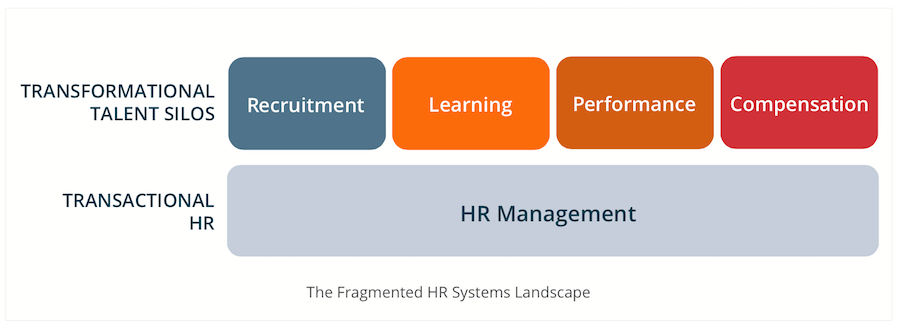In the corporate landscape, HR departments have to deal with different kinds of data from different systems. Often this data is fragmented, and companies and HR managers need to integrate it in order to drive positive outcomes for business.
This is examined in the following excerpt from the recently released whitepaper entitled “Integrating the HR landscape on the Cloud” by Fosway Group and published by Docebo.
Why do we need to integrate HR data?
by David Wilson, CEO of Fosway Group
If the reason HR systems are fragmented is because the HR function and sub-functions are fragmented, why do we need to integrate HR data?
This is a good question, but the answer is fairly obvious; the success of HR is not really measured in the success of its sub-functions, but in the overall impact it has on the business. Recruiting more people is irrelevant if those people don’t perform or leave. Training staff more doesn’t necessarily mean they have the right skills to do the specific job they need to do next week or next month. Retaining your best people is a function of more than paying them each month. Making sure we have the right people, working in the right way, and managed in the right way requires us to connect information about employees from across all parts of the HR landscape.

- People are your only asset; for the majority of businesses, their people are their biggest cost and their biggest value added. Whilst we might recognise this, working out how we maximise the value of our people is very hard to measure and manage.
- Efficiency and Cost; there is ever greater pressure to get more work done with less people – maximising the productivity and efficiency of people resources is more critical than ever
- Performance first; traditional models of performance management have proved to be artificial and inflexible – relating performance to day to day work processes and feedback
- War for Talent; acquiring and retain key talent is a top focus for many organisations – identifying who that talent is, as well as how to retain and develop it requires a more holistic view of your people, what they do, and why they work for you
Ultimately, the bottom line is that HR is not just expected to track and record people data, it is expected to be able to use that data to drive positive outcomes for the business. That means being able to cross-integrate data across the fragmented HR landscape, and between HR systems and work systems.
